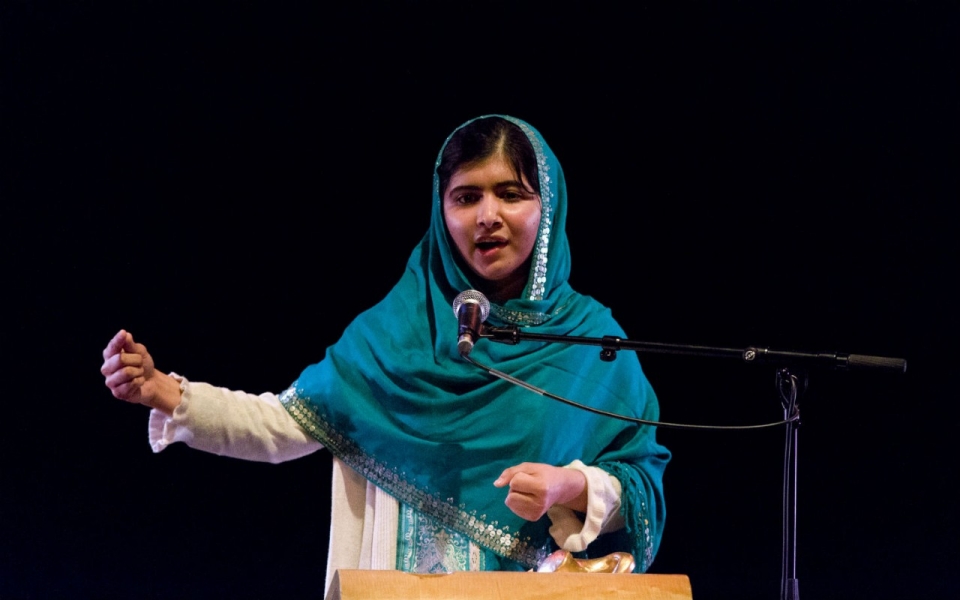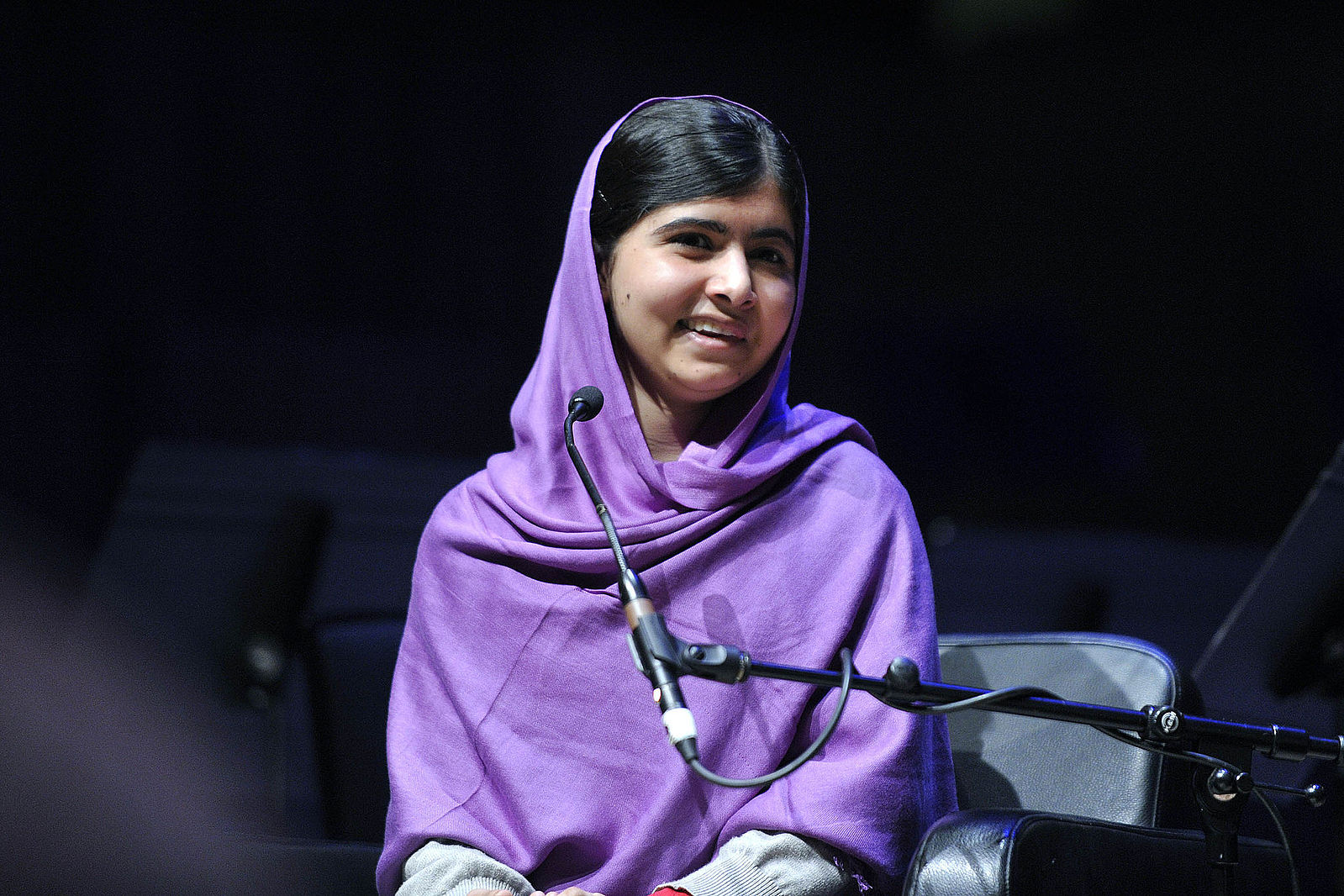Malala fought for education because she believed in its power to create a better future for herself and other girls. Education is a fundamental right that empowers individuals and strengthens societies, and Malala recognized the importance of providing every child, regardless of gender, with access to quality education.
Her fight for education was fueled by her own personal experiences, as she experienced firsthand the limitations and restrictions placed on girls’ education under the Taliban’s rule in Pakistan. Malala’s resilience and determination inspired millions around the world, as she tirelessly advocated for equal educational opportunities and worked towards breaking down barriers that prevent children, especially girls, from receiving an education.
Through her activism, Malala stood up against injustice and became a voice for those whose voices were silenced.
The Young Activist Who Made A Global Impact
htmlMalala Yousafzai, born on July 12, 1997, in Mingora, Pakistan, grew up in the Swat Valley, known for its breathtaking landscapes but also for its conservative values. Encouraged by her father, who ran a chain of schools, Malala developed a passion for education from a young age. She attended the Khushal Girls High School, where she excelled academically and became increasingly aware of the inequalities faced by girls in her community in accessing quality education. Despite facing threats and intimidation from the Taliban, who sought to restrict girls’ education in the region, Malala remained resolute in her pursuit of knowledge and her advocacy for educational rights.
Malala’s activism began in early 2009 when she anonymously wrote a blog for the BBC Urdu service, detailing her experiences under Taliban rule and her strong belief in the right to education for all children. As her blog gained international attention, Malala’s identity was revealed, and she started speaking publicly about the importance of education. Her fearless advocacy brought her recognition both locally and globally, making her a symbol of resilience and determination.
Malala’s efforts to promote education have garnered worldwide acclaim. In 2014, she became the youngest-ever recipient of the Nobel Peace Prize at the age of 17, recognizing her courage and commitment to the cause. She has also received numerous other awards, including honorary Canadian citizenship, the Sakharov Prize for Freedom of Thought, and honorary degrees from prestigious institutions such as Harvard University and the University of Oxford. Malala’s remarkable achievements have not only inspired millions but also highlighted the urgent need to address the global education crisis.
Malala’s Struggle Against Injustice
htmlMalala Yousafzai, a young Pakistani activist, bravely fought for education despite the oppressive Taliban regime. Facing the direct threat of violence, she defied the Taliban’s ban on girls’ education, becoming a symbol of resistance and hope.
Malala understood the power of education in transforming lives and communities, and she was determined to empower young girls through education. Believing that access to education was a fundamental right, she advocated for equal opportunities for all children, regardless of gender.
Her unwavering passion inspired millions around the world to take a stand against injustice and fight for education as a basic human right. Malala’s story serves as a reminder that education is a vital tool for empowerment and progress, capable of breaking the chains of oppression and paving the way for a brighter future.
Factors That Drove Malala’s Fight
Malala Yousafzai became an advocate for education as a result of several factors that motivated her fight. One of the key factors was the cultural and societal barriers to education that she witnessed in her community. In many parts of the world, education for girls is considered less important than for boys, leading to significant gender inequality and discrimination. Malala recognized the importance of breaking down these barriers and giving girls equal access to education.
Another factor that drove Malala’s fight was the economic disparity that affects education. In impoverished communities, families struggle to afford the expenses associated with education, such as school fees, books, and uniforms. This financial burden often forces children, especially girls, to drop out of school. Malala, having experienced the challenges of growing up in a disadvantaged community, understood the devastating effects of economic disparity on education.
By advocating for education, Malala aimed to address these cultural, societal, and economic barriers that hindered access to education. Her determination to overcome these obstacles and create opportunities for others has made her a powerful advocate for education worldwide.
Malala’s Resilient Spirit And Inspirational Impact
htmlMalala’s Resilient Spirit and Inspirational Impact
The power of Malala’s voice and activism has been a catalyst for change, inspiring young people around the world to stand up for their right to education. Through her unwavering determination, Malala has become a symbol of hope and resilience for millions.
Malala’s story has resonated with people from all walks of life, transcending borders and cultures. Her message of education as a fundamental right has had global ripple effects, leading to increased awareness and support for educational opportunities.
By sharing her own experiences and advocating for girls’ education, Malala has sparked conversations and debates around the importance of equal access to learning. Her courage and conviction have empowered countless individuals to raise their voices and fight against inequality.
Malala’s Fight For Education: A Catalyst For Change
| Malala’s Fight for Education: A Catalyst for Change |
Malala Yousafzai, a young Pakistani activist, emerged as a symbol of courage and resilience through her fight for education. Her story inspired a global movement advocating for equal access to education for all. Malala’s unwavering determination captivated the world, leading to significant policy changes and international commitments to address the educational needs of marginalized communities.
Malala’s fight sparked the formation of numerous advocacy organizations dedicated to championing educational rights. These organizations tirelessly work towards breaking barriers and amplifying the voices of those deprived of education. Their collective efforts have played a pivotal role in driving the ongoing battle for equal education opportunities.
By shining a spotlight on the importance of education, Malala initiated a profound change. Governments, international bodies, and individuals were compelled to acknowledge the critical role education plays in fostering sustainable development, eradicating poverty, and promoting gender equality. The ripple effect of Malala’s fight continues to shape educational policies and programs worldwide, creating a pathway towards a more inclusive future.
Malala’s Legacy: Motivating Future Generations
Malala Yousafzai, the youngest Nobel Prize laureate, fought tirelessly for the right to education. Her incredible journey from surviving a Taliban attack to becoming an international advocate for education has made her an iconic figure. Malala’s courage and determination have inspired millions of people worldwide, especially young girls, to stand up for their rights.
As a symbol of hope and inspiration, Malala has shown the world that one person’s voice can create a ripple effect for change. Her continued efforts in promoting education around the globe have led to increased awareness and support for education initiatives. Through her own experiences, she has shed light on the challenges faced by many children who are denied access to education.
Malala’s story teaches us that even in the face of adversity, we can strive to make a difference in society. It highlights the importance of education as a tool for empowerment and creating a better future. To continue her legacy, we must all actively work towards improving educational opportunities for all children, regardless of their gender, ethnicity, or social background.
Lessons Learned And The Way Forward
Malala’s fight for education has taught us several valuable lessons. Firstly, it highlights the power of determination, resilience, and the commitment to a cause. Secondly, it reminds us of the significance of education in shaping individuals and societies. Lastly, her story encourages us to take action and support educational initiatives through various means, such as donations, volunteering, and advocacy.
| Lessons learned: | The way forward: |
|---|---|
|
|

Credit: america.aljazeera.com
Frequently Asked Questions Of Why Did Malala Fight For Education
Why Did Malala Advocate For Education?
Malala advocated for education to empower girls and ensure equal opportunities for all. Her experiences of being denied an education fueled her determination to speak up for those facing similar challenges. By advocating for education, she aimed to break the cycle of poverty and promote a more inclusive and equitable society.
What Did Malala Do To Fight For Education?
Malala fought for education by advocating globally, speaking out against Taliban restrictions, and promoting girls’ right to learn.
What Is Malala’s Goal For Education?
Malala’s goal for education is to ensure that every child, especially girls, has access to quality education worldwide. She advocates for equal opportunities and believes education is essential for empowering individuals and creating positive change in society.
Why Did Malala Fight For Education?
Malala fought for education because she believes that every child has the right to education. She understands that education is the key to empower individuals, break the cycle of poverty, and promote equality. Despite facing threats and attacks, Malala remains determined to advocate for education and stand up for those who are denied this basic right.
Conclusion
Malala’s fight for education stemmed from her deep-rooted belief in the power of knowledge and its ability to bring about positive change in society. Through her remarkable journey, she has shown the world that education is not only a fundamental right but also a catalyst for progress and empowerment.
Despite facing numerous challenges, Malala’s unwavering determination has inspired millions and continues to make a lasting impact on the lives of girls and women worldwide. Her bravery and advocacy serve as a reminder that education is a powerful tool that can break down barriers and pave the way for a brighter future.







